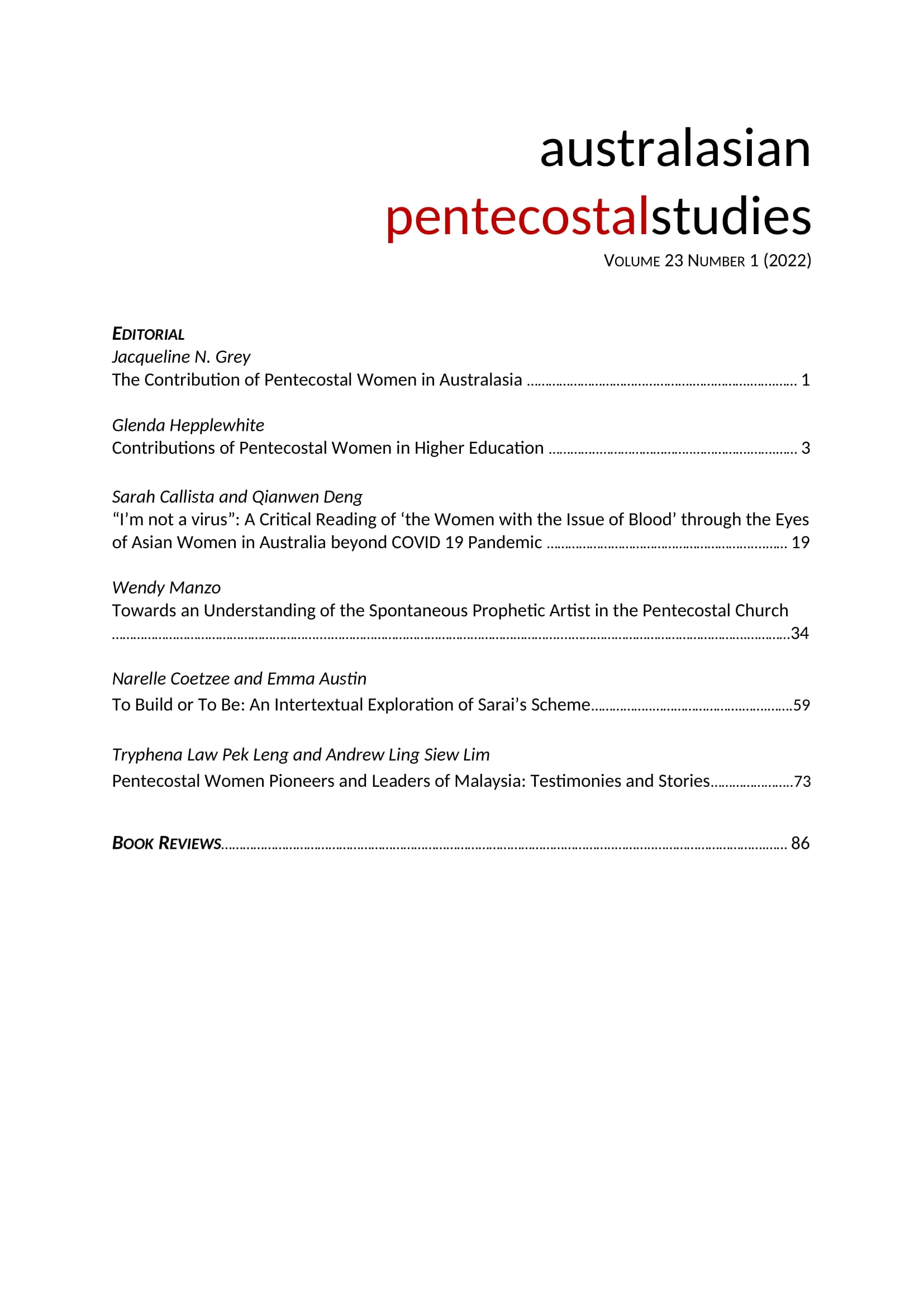“I’m not a virus”
A Critical Reading of ‘the Women with the Issue of Blood’ through the Eyes of Asian Women in Australia beyond COVID19 Pandemic
Abstract
The story of the woman with the issue of blood (Mark 5:25-34) is often read with an emphasis on holistic healing, which includes a transformation of identity from a disease-carrying outcast. In light of the intensified Covid19-related ‘Asian-hate’ and the micro and macro racial discriminations towards Asian diaspora in Western countries like Australia, this article asks the question, "what does the identity of the women with the issue of blood mean for us as Asian diaspora women in Australia beyond Covid19 pandemic." This article records the authors’ personal reflection of being marginalised to empathise with the story of the women with the issue of blood using a narrative criticism method. By examining the intersectional factors which affect the formation of identity, the article discusses how the image of the women with the issue of blood exemplifies the experience of the Asian diaspora women. The faith and the transformation demonstrated in the example of the woman with the haemorrhage, in turn, could bring healing and hope to the Asian diaspora women’s community.
Downloads
Published
How to Cite
Issue
Section
License
Authors who publish with this journal agree to the following terms:
- Authors retain copyright and grant the journal right of first publication with the work simultaneously licensed under a Creative Commons Attribution License that allows others to share the work with an acknowledgement of the work's authorship and initial publication in this journal
- Authors are able to enter into separate, additional contractual arrangements for the non-exclusive distribution of the journal's published version of the work (e.g., post it to an institutional repository or publish it in a book), with an acknowledgement of its initial publication in this journal.
- Authors are permitted and encouraged to post their work online (e.g., in institutional repositories or on their website) prior to and during the submission process, as it can lead to productive exchanges, as well as earlier and greater citation of published work (See The Effect of Open Access).


